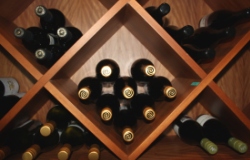2.1 NSW liquor laws
|
The Liquor Act 2007 (the Act) is the primary legislation for regulating the sale and supply of alcohol in NSW. The Liquor Regulation 2008 supports the Act and provides the statutory framework for a number of requirements, including RSA training. So, what are the key requirements of the Act and what are your legal obligations for RSA in NSW? |
|
The Liquor Act sets out three primary objectives. They are: to minimise alcohol abuse; that the sale and supply of alcohol meets the community's expectations; and that the balanced development of the industry is weighed against the need for controls and restrictions.
There are controls around who can be licensed, the trading times, who can be served and in what circumstances. As well as rules, for example not serving people who are intoxicated and not serving minors, there is also a set of conditions and licences. Responsible service of alcohol strategies and initiatives reinforce and compliment the rules and conditions.
Objects of the Act
The objects of this Act are as follows:
-
to regulate and control the sale, supply and consumption of alcohol in a way that is consistent with the expectations, needs and aspirations of the community,
-
to facilitate the balanced development, in the public interest, of the liquor industry, through a flexible and practical regulatory system with minimal formality and technicality,
-
to contribute to the responsible development of related industries such as the live music, entertainment, tourism and hospitality industries.
In order to secure the objects of this Act, each person who exercises functions under this Act (including a licensee) is required to have due regard to the following:
-
the need to minimise harm associated with misuse and abuse of liquor (including harm arising from violence and other anti-social behaviour),
-
the need to encourage responsible attitudes and practices towards the promotion, sale, supply, service and consumption of liquor,
-
the need to ensure that the sale, supply and consumption of liquor contributes to, and does not detract from, the amenity of community life.
The Act controls where, when and how liquor can be sold on licensed premises, and who can serve and consume it. The Act also:
-
regulates licensing conditions, trading hours, licensed area definitions and disciplinary sanctions
-
covers the licensee’s obligations in regard to public interest, and harm minimisation requirements
-
outlines the obligations of the licensee and persons authorised to sell liquor in licensed premises.
Liquor Regulation 2008
The Liquor Regulation 2008 supports the Act by providing additional mandatory conditions, requirements and harm minimisation measures for licensed premises.
The Regulation also prescribes requirements for mandatory RSA training, including:
-
the definition of an approved training course and a recognised RSA Competency Card
-
that staff members of licensed premises must not sell, supply or serve liquor by retail on the premises unless they hold a recognised RSA Competency Card
-
penalties for breaches of the RSA training requirements.
|
For more information on the Liquor Act 2007 and the Liquor Regulation 2008 visit http://www.olgr.nsw.gov.au/legislation_home.asp |
Penalties
Selling and serving alcohol irresponsibly can lead to fines and other penalties for licensees, club secretaries and staff. These fines, along with other penalties for committing an offence, are detailed in the Act and Regulation.
